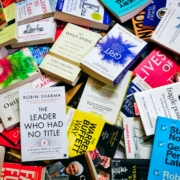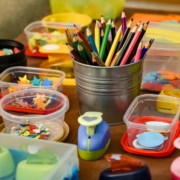THE CAROUSEL OF CREDIBILITY GRAB THE GOLD BAND OF BELIEVABILITY
What goes around, comes around. From the beginning of advertising, expert testimony was the way to sell a brand. From the remarkable RJ Reynolds cigarette ads that touted that Doctors recommend Camels, to the ADA seal of approval on Crest toothpaste (Look Ma, no cavities!), to Ronald Reagan and GE, to TV star Mariette Hartley selling Polaroid cameras, to today with Marie Osmond and Oprah Winfrey confirming their weight loss results with Nutrisystem and Weight Watchers, respectively.
But, overpowering expert testimony has been the increasing reliance on peer review, peer ratings, and online peer influencers and websites of peers alerting us to situations such as the food safety (alleged) poisonings at Chipotle. Many people do not make a hotel reservation without checking with TripAdvisor, even though faceless, unknowns of potentially sketchy backgrounds are dishing their opinions. They do not make a restaurant choice without checking Yelp. They select a doctor by searching for patient ratings. They select a home-repair person by checking Home Advisor.
Things have changed. The carousel of credibility has turned around with its calliope crooning a new crescendo: experts and academics are now more trusted than peers. The credibility and validity of peer ratings are being questioned. According to the 2018 Edelman Trust Barometer, just released, 2017 was a good year for faith in experts, and a really bad year for faith in peers. Technical (63%) and academic (61%) experts became the most credible spokespeople relative to “a person like yourself,” which dropped six points to an all-time low of 54%.
In the Edelman press release, the head of the Reputation practice said the following: “In a world where facts are under siege, credentialed sources are proving more important than ever. There are credibility problems for both platforms and sources. People’s trust in them is collapsing, leaving a vacuum and an opportunity for bona fide experts to fill.”
Trust in CEO’s is benefiting. For years, CEO credibility has been on the decline. But as the new study reports, “…this past year saw CEO credibility rise sharply by seven points to 44% after a number of high-profile business leaders voiced their positions on the issues of the day.” In other words, CEOs have moved to standing up for what their brands stand for, a welcome change.
Being the purveyor of credibility has responsibilities. As Edelman points out, “building trust (69%) is now the No. 1 job for CEOs, surpassing producing high-quality products and services (68%).”
Brands must leverage this turn of events. Now is the time to involve expert testimony to enhance brand expertise in the brand’s area of authority. Peer testimony is not going away, but allowing it to totally define and drive the brand is creating a lot of baseless buzz rather than believability.
Brand credibility is a driver of purchase intent. Studies show that the more credible the brand, the higher is the purchase intention toward the brand. Customers show greater purchase intention toward brands that are credible. Research from 2004 indicated that brand credibility could increase the probability of inclusion of a brand in a customer’s consideration set. The years of research on credibility and brand clearly articulate that one of the significant factors in augmenting brand credibility is based on providing expertise.
Credibility means that the brand can be believed to consistently deliver what it promises. The support of “credentialed” individuals is a factor that helps build trust. Credentials means having specific qualifications or checkable achievements as indicators of relevant expertise.
The question for brands has always been “who do you trust?” Brands relied on their heritage, and sometimes the support of experts. But, in the modern social media age, brands relied on the power of peer ratings and comments.
It seems the carousel is spinning around to a new time for trusting the experts over the amateurs. Peer reports and ratings will always be important. But, in a world of information overload, expert testimony will rise in importance. Brands must step out into this brave new world where expertise is the new king. Brands must adopt a new view on how to communicate their expertise as an authoritative source of quality, leadership, and trust.








